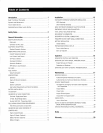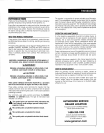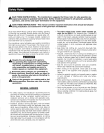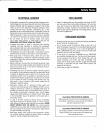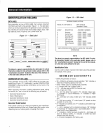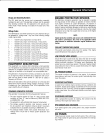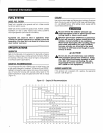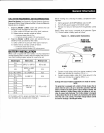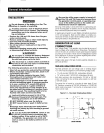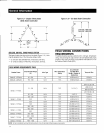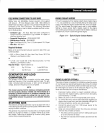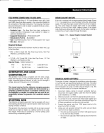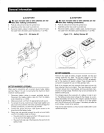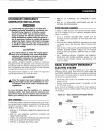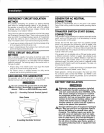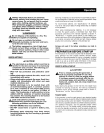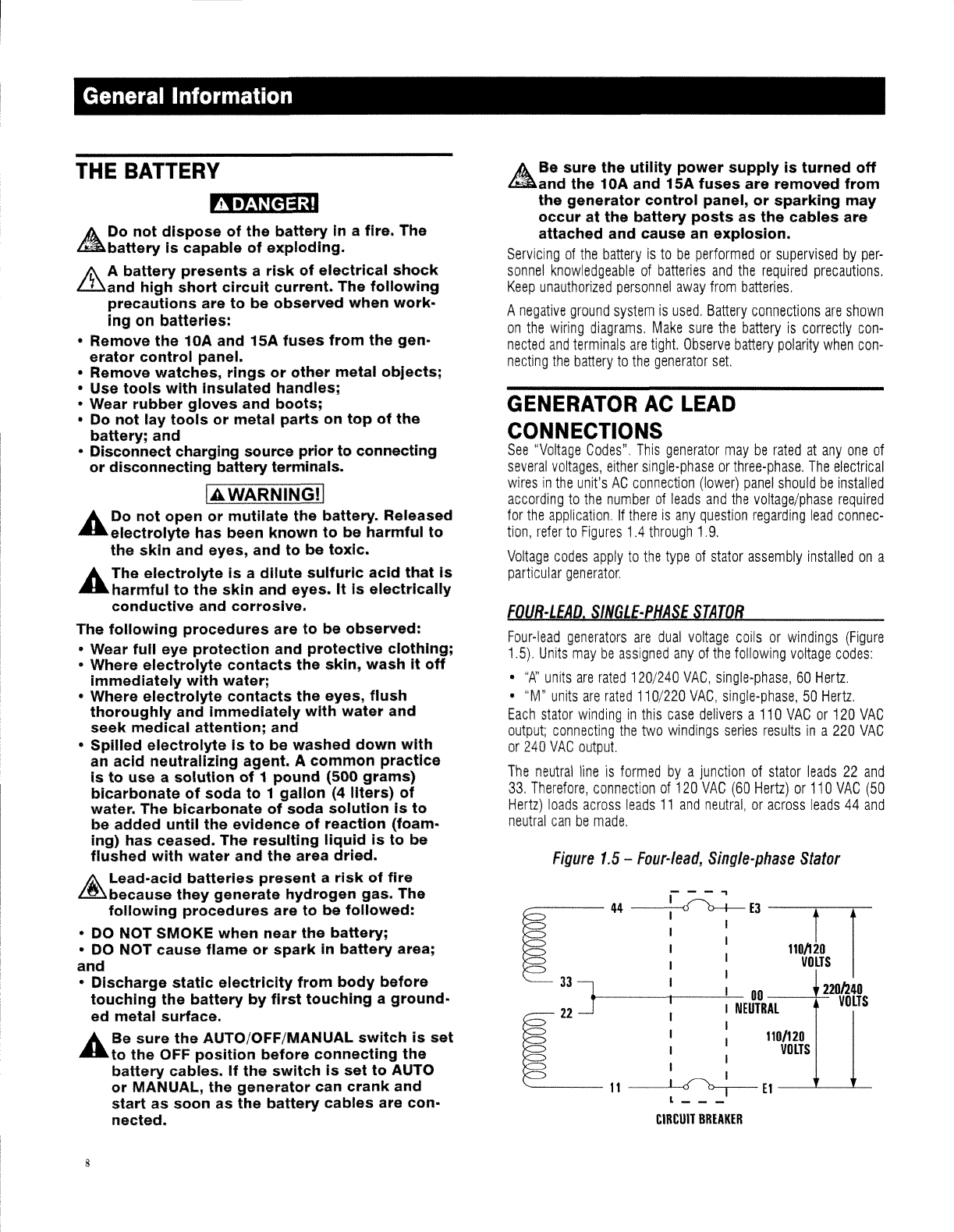
General Information
THE
BATTERY
~
A Do
not
dispose
of
the
battery
In a
fire.
The
tAbattery
Is
capable
of
exploding.
/r\ A
battery
presents
a
risk
of
electrical
shock
illand
high
short
circuit
current.
The
following
precautions
are
to
be
observed
when
work-
ing
on
batteries:
• Remove
the
10A
and
15A
fuses
from
the
gen-
erator
control
panel.
• Remove
watches,
rings
or
other
metal
objects;
• Use
tools
with
Insulated
handles;
• Wear
rubber
gloves
and
boots;
• Do
not
lay
tools
or
metal
parts
on
top
of
the
battery;
and
• Disconnect
charging
source
prior
to
connecting
or
disconnecting
battery
terminals.
IA
WARNING!1
Jt..
Do
not
open
or
mutilate
the
battery.
Released
....
electrolyte
has
been
known
to
be
harmful
to
the
skin
and
eyes,
and
to
be
toxic.
A The
electrolyte
Is
a
dilute
sulfuric
acid
that
Is
....
harmful
to
the
skin
and
eyes.
It
is
electrically
conductive
and
corrosive.
The
following
procedures
are
to
be
observed:
• Wear
full
eye
protection
and
protective
clothing;
•
Where
electrolyte
contacts
the
skin,
wash
It
off
Immediately
with
water;
•
Where
electrolyte
contacts
the
eyes,
flush
thoroughly
and
Immediately
with
water
and
seek
medical
attention;
and
•
Spilled
electrolyte
Is
to
be
washed
down
with
an
acid
neutralizing
agent.
A
common
practice
Is
to
use
a
solution
of
1
pound
(500
grams)
bicarbonate
of
soda
to
1
gallon
(4
liters)
of
water. The
bicarbonate
of
soda
solution
is
to
be
added
until
the
evidence
of
reaction
(foam-
ing)
has
ceased.
The
resulting
liquid
Is
to
be
flushed
with
water
and
the
area
dried.
&.
lead-acid
batteries
present
a
risk
of
fire
Lmbecause
they
generate
hydrogen
gas.
The
following
procedures
are
to
be
followed:
• DO NOT SMOKE
when
near
the
battery;
• DO NOT
cause
flame
or
spark
in
battery
area;
and
•
Discharge
static
electricity
from
body
before
touching
the
battery
by
first
touching
a
ground-
ed
metal
surface.
A Be
sure
the
AUTO/OFF/MANUAL
switch
is
set
....
to
the
OFF
position
before
connecting
the
battery
cables.
If
the
switch
is
set
to
AUTO
or
MANUAL,
the
generator
can
crank
and
start
as
soon
as
the
battery
cables
are
con-
nected.
8
A Be
sure
the
utility
power
supply
is
turned
off
tAand
the
10A
and
15A
fuses
are
removed
from
the
generator
control
panel,
or
sparking
may
occur
at
the
battery
posts
as
the
cables
are
attached
and
cause
an
explosion.
Servicing
of
the
battery
is
to
be
performed
or
supervised
by
per-
sonnel
knowledgeable
of
batteries
and
the
required
precautions.
Keep
unauthorized
personnel
away
from
batteries.
A
negative
ground
system
is
used.
Battery
connections
are
shown
on
the
wiring
diagrams.
Make
sure
the
battery
is
correctly
con-
nected
and
terminals
are
tight.
Observe
battery
polarity
when
con-
necting
the
battery
to
the
generator
set.
GENERATOR
AC
LEAD
CONNECTIONS
See
"Voltage
Codes".
This
generator
may
be
rated
at
anyone
of
several
voltages,
either
single-phase
or
three-phase.
The
electrical
wires
in
the
unit's
AG
connection
(lower)
panel
should
be
installed
according
to
the
number
of
leads
and
the
voltage/phase
required
for
the
application.
If
there
is
any
question
regarding
lead
connec-
tion,
refer
to
Figures
1.4
through
1.9
.
Voltage
codes
apply
to
the
type
of
stator
assembly
installed
on
a
particular
generator
.
fOUR-LEAD,
SINGLE-PHASE
STATOR
Four-lead
generators
are
dual
voltage
coils
or
windings
(Figure
1.5).
Units
may
be
assigned
any
of
the
following
voltage
codes:
•
"{:>:.'
units
are
rated
120/240
VAG,
single-phase,
60
Hertz.
•
"M"
units
are
rated
110/220
VAG,
single-phase,
50
Hertz.
Each
stator
winding
in
this
case
delivers
a
110
VAG
or
120
VAG
output;
connecting
the
two
windings
series
results
in
a
220
VAG
or
240
VAC
output.
The
neutral
line
is
formed
by
a
junction
of
stator
leads
22
and
33.
Therefore,
connection
of
120
VAG
(60
Hertz)
or
110
VAC
(50
Hertz)
loads
across
leads
11
and
neutral,
or
across
leads
44
and
neutral
can
be
made.
Figure
1.5
-
Four-lead,
Single-phase
Stator
E
44~EJ
I I
I
II
110/120
I
VOLTS
JJ ] I :
00
b20h40
I I
NEUTRAL:lloLTS
E
22
I
I :
110/120
I
VOLTS
I I
I
11~E1
l _
CIRCUIT
BREAKER



